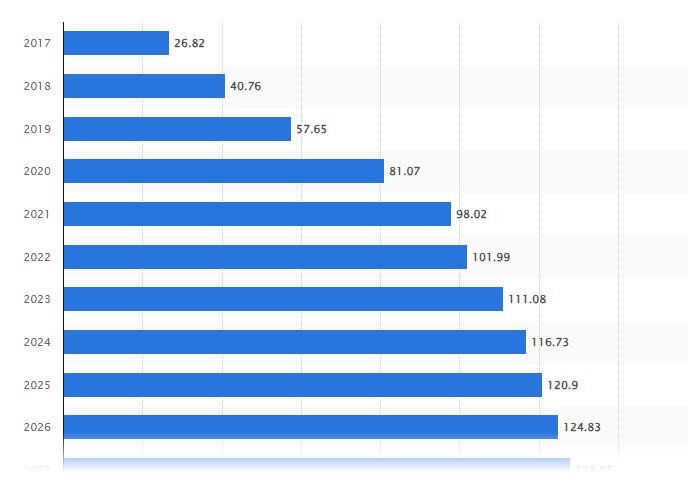The healthcare industry witnessed a significant revolution during the pandemic. With lockdowns in place, the demand for telemedicine surged. Now, the integration of Artificial Intelligence (AI) in telemedicine is poised to revolutionize healthcare services, making them more efficient and accessible.
Previously, healthcare services relied heavily on in-person consultations. However, telemedicine has embraced digitalization, offering a convenient platform for patients and doctors to connect virtually. AI-powered telemedicine applications have emerged as a solution, enabling healthcare experts to deliver remote medical services efficiently.
Despite the advancements, the future of AI in telemedicine remains a topic of debate. Do you share similar thoughts? This article delves into the future of AI in telemedicine, shedding light on its benefits and potential.
An Introduction to Telemedicine
Telemedicine software facilitates the delivery of medical services remotely. Doctors can diagnose patients from the comfort of their homes, providing tailored treatment plans based on the patient’s health condition.
Video conferencing plays a pivotal role, allowing doctors to closely examine patients via camera and understand their body language. Apart from convenience, telemedicine software reduces travel time and lowers medical costs, promising a bright future for telemedicine.
Role of AI in Telemedicine
AI optimizes resource allocation and predicts potential health challenges in telemedicine. It streamlines processes, enhances patient care, and offers innovative solutions, transforming the healthcare industry. The integration of AI in telemedicine removes geographical barriers, making personalized care accessible to all.
Patients can easily connect with doctors using AI-driven telemedicine software, revolutionizing healthcare services. As a result, the international market size of AI technologies in the healthcare industry is expected to soar from $11.5 billion in 2022 to nearly $128 billion by 2027.
Use of AI in Telemedicine Solutions
In recent years, the integration of Artificial Intelligence (AI) in telemedicine has revolutionized the healthcare industry. Entrepreneurs and businesses exploring the adoption of AI in telemedicine can benefit greatly from understanding its advantages, challenges, and prospects. This blog explores the benefits, challenges, and future of AI in telemedicine, shedding light on its potential impact on healthcare delivery.
- Remote Monitoring: Wearable gadgets and sensors, combined with AI, provide continuous remote monitoring of patients’ health indicators. Healthcare professionals can remotely monitor patients’ situations and take immediate action when needed, ensuring timely interventions and improved medical outcomes.
- Diagnostic Imaging Analysis: AI in telemedicine analyses medical images like CT scans and X-rays, enabling healthcare experts to diagnose conditions remotely. This speeds up the diagnostic process, allowing for prompt treatment and better patient care.
- Virtual Health Assistance: AI interacts with patients, addresses medical queries, offers personalized guidance, and sends reminders. This improves patient engagement, resulting in better adherence to treatment plans and enhanced medical outcomes.
- Predictive Analytics: AI systems analyse large patient datasets to identify trends and forecast health hazards. Telemedicine solutions leverage predictive analytics to stratify patients according to their risk profiles, enabling tailored preventative care regimens and proactive interventions.
- Chatbots: Chatbots assist doctors in scheduling telehealth appointments and answering queries on portals. They streamline administrative tasks, allowing healthcare professionals to focus on patient care.
- Diagnostic Support: AI-powered diagnostic tools enable precise remote diagnosis of medical disorders. Machine learning algorithms thoroughly examine medical images from MRIs, CT scans, and X-rays, facilitating faster and more accurate diagnoses.
- Treatment Optimization: AI examines patient medical histories and clinical guidelines to provide individualized treatment regimens. Tailored treatment programs consider the patient’s medical history, genetic composition, lifestyle choices, and preferences, ensuring optimal outcomes.

Annual number of users of online doctor consultations worldwide from 2017 to 2028
Benefits of AI in Telemedicine
AI brings numerous benefits to telemedicine, including:
- Personalized Patient Care: AI algorithms leverage patients’ medical history and lifestyle patterns to make informed decisions, leading to personalized and satisfactory healthcare services.
- Improved Access to Healthcare: With no geographical barriers, AI-powered telemedicine ensures that quality healthcare services are accessible to all, especially benefiting underserved and rural areas.
- Improved Diagnostic Accuracy: Deep learning techniques enable AI to make accurate diagnoses by closely analysing patients’ data, ultimately improving patient outcomes and reducing complications.
- Cost and Time Saving: Telemedicine software saves time by eliminating the need for in-person visits and repetitive diagnostic tests, making healthcare more cost-effective and accessible.
- Efficient Workflow Optimization: AI streamlines clinical workflows and administrative tasks, allowing healthcare providers to focus on improving patient health and enhancing operational efficiency.
Challenges of AI in Telemedicine
Despite its benefits, AI in telemedicine faces challenges such as:
- Data Privacy and Security Concerns: Telemedicine platforms deal with sensitive patient medical records, raising concerns about data privacy and security. Therefore, compliance with HIPAA and other regulations is key to maintaining trust among patients.
- Data Quality and Bias: Inaccurate or biased data can lead to inaccurate predictions and hinder the diagnosis and treatment process. Ensuring excellent data quality is essential to reduce bias in AI-driven telemedicine solutions.
- Regulatory and Legal Challenges: Incorporating AI into telemedicine presents legal and regulatory challenges concerning compliance, liability, licensure, and payment. Navigating these regulatory environments is vital to ensuring ethical and compliant AI application in telemedicine.
Future Of AI in Telemedicine
The future of AI in telemedicine holds great promise. It can improve diagnostic precision, facilitate remote monitoring, and make medical care more accessible. Despite the complexity and challenges, advancements in AI technology can address these issues and further enhance healthcare delivery.
Conclusion
AI has emerged as a game-changer in telemedicine, offering personalized care, improved access to healthcare, and enhanced diagnostic accuracy. While facing challenges such as data privacy concerns and regulatory hurdles, the future of AI in telemedicine remains bright. Businesses and entrepreneurs can leverage AI-enabled telemedicine solutions to provide excellent healthcare services and improve patient outcomes. If you’re seeking expert solutions in AI-powered telemedicine, don’t hesitate to contact us today!
AI holds immense potential in revolutionizing telemedicine, offering innovative solutions to enhance patient care and accessibility. As technology continues to evolve, the future of AI in telemedicine promises ground-breaking advancements, shaping the landscape of healthcare delivery worldwide.

After an Engineering degree and a Diploma in Management I devoted 16+ years working in the automotive industry. My innate skill and extreme passion in writing, encouraged me to adopt it up as a profession. I have been writing for more than 10+ years in the software industry. The 400+ blogs I published are informative, exhaustive and interesting to a professional and causal reader.







